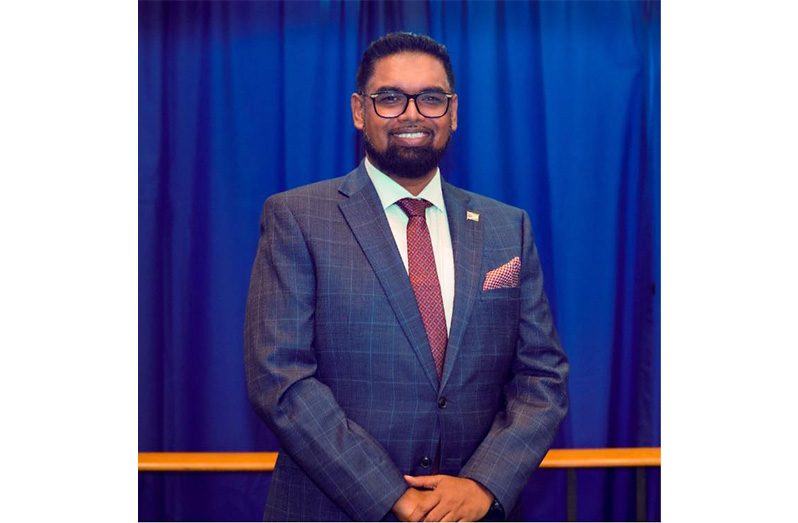PRESIDENT Dr. Irfaan Ali, on Saturday, welcomed the announcement of an immediate ceasefire between nuclear-armed neighbours India and Pakistan, calling for all parties involved to honour the agreement and allow peace to flourish in the region.
In a brief but pointed statement posted to his official Facebook page, President Ali said, “I welcome the immediate ceasefire between India and Pakistan. According to the Ministry of Information and Broadcasting in India, firing on the ground, air, and sea from both sides will cease immediately.”
“We urge all parties to respect the terms of the ceasefire and allow peace to foster and grow,” he added.
President Ali’s remarks reflect Guyana’s deep commitment to peace and stability on the global stage. As a country that shares strong diplomatic ties with both India and Pakistan, Guyana has long stood for dialogue and peaceful solutions to conflict, values it also upholds in its own approach to resolving the border controversy with neighbouring Venezuela.

India’s External Affairs Minister, Dr. Subrahmanyam Jaishankar, also issued a statement on his official Facebook page, confirming the agreement and clarifying India’s position.
“India and Pakistan have today [Saturday] worked out an understanding on stoppage of firing and military action,” Jaishankar stated.
However, while acknowledging the ceasefire, the Indian Foreign Minister emphasised that India’s broader security concerns remain unchanged, particularly on the issue of terrorism.
“India has consistently maintained a firm and uncompromising stance against terrorism in all its forms and manifestations. It will continue to do so,” he wrote.
His comments underscore India’s ongoing concerns about cross-border terrorism, which have been a central point of contention in Indian-Pakistani relations for decades.
Tensions between India and Pakistan rose drastically in April 2025 following the killing of 26 individuals in an assault on visitors close to the resort town of Pahalgam in Indian-controlled Kashmir, as per the BBC. It was the deadliest attack on regular citizens in the district in over two decades, the BBC said.
The BBC reported that Kashmir is claimed in full by India and Pakistan, but administered only in part by each since they were partitioned following independence from Britain in 1947.
In response, India launched missile strikes two weeks later on targets located in both Pakistan and Pakistan-administered Kashmir, prompting widespread international concern and renewed calls for restraint from both sides.
The BBC said that on May 7, 2025, Indian Foreign Secretary, Vikram Misri, said Pakistan-based Lashkar-e-Taiba militant group carried out the attack.
An article published by the BBC a few days ago noted that: “In the two weeks since, both sides had taken tit-for-tat measures against each other – including expelling diplomats, suspending visas and closing border crossings.”
The BBC noted that Kashmir remains one of the most militarised zones in the world, with the long-standing territorial dispute continuing to fuel instability across the region.
The ceasefire announcement is a landmark in the tempestuous and frequently troubled relationship between India and Pakistan, both of which have fought numerous wars and been constantly at each other’s throats along their contested borders since gaining independence.
India has been accusing Pakistan for a long time of funding militant groups operating in the disputed region of Kashmir—a claim Islamabad denies.
The new ceasefire comes after months of increased tensions and periodic crossfires along the Line of Control (LoC), the de facto border between Indian-administered and Pakistani-administered Kashmir.
The ceasefire has been welcomed by several international actors as a step in the right direction towards regional stability.



.jpg)










